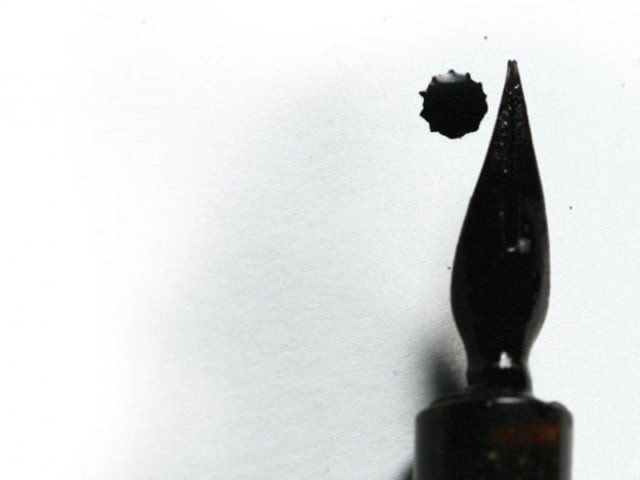Romanising Pashto: The debate rages on
Regardless of political beliefs, latinisation is taking place as an organic result of communication necessity.

Regardless of political beliefs, latinisation is taking place as an organic result of communication necessity. STOCK IMAGE
Is the romanisation of Pashto a good idea? Regardless of our views, it is something that already exists. For a language that has more speakers than writers, the decision to do or not to do will depend on political beliefs of the native speakers.
In the census of 1998, it was estimated that 73.9 % people in Khyber-Pakhtunkhwa (known then as NWFP) spoke Pashto. However, Pashto literacy remained a low priority for the provincial and national assemblies. It was not until 1984 that Pashto was officially sanctioned.
The politics related to Pashto language have been well documented by Robert Nicols in Language Policy and Language Conflict in Afghanistan and its Neighbors: The Changing Politics of Language Change. The author discusses the manner in which historical conditions of the area raised and lowered the value of the Pashto and its use in social and political domains.
He implicitly mentions the language was predominantly used and solidified in madrassas rather than the formal schooling system.
Today, however, as education has become an integral part of Pukhtun society—idealistically—the most common script of communication amongst the middle and upper middle classes is romanised Pashto. Perhaps the most pervasive influence on romanisation has been technological; evidence of which is clear in the form of text messages, tweets or Facebook posts. Most of them are in the romanised form of the language.
Over the years, public spaces in Pukhtun society have shrunk and the hujra or jumat, considered integral to the linguistic community, has been severely affected by terrorism. This resulted in the progression to a relatively closed off and safe social media where the same interaction takes place, but with less intimacy.
Whether romanisation should be officially notified or not is something that has developed into a debate. The earliest of efforts to romanise Pashto were in the 1950s and 60s in Afghanistan through the Yaqubi script. Later, and perhaps the most noteworthy, efforts were the ones in the aftermath of 9/11.
The conservative school of thought believes a standardised, romanised Pashto will have consequences for the original script. The more liberal school of experts believes a romanised form will encourage more people to learn it. The argument for the more liberal school is based on the fact that the differences in various dialects are not morphological, but based on the pronunciation of various dialects.
The debate is not specific to Pashto alone; languages throughout the world are facing similar issues. A Pashto-specific romanised script carries political undertones that have been unresolved for decades.
The last government in K-P made proposals for a romanised script, but there was no tangible progress. The criticism for Pukhtuns has been their deliberate aloofness. Meanwhile, the Pukthuns argue they have been marginalised. The romanisation of the language can perhaps become a step to negate both.
Published in The Express Tribune, November 25th, 2015.













COMMENTS
Comments are moderated and generally will be posted if they are on-topic and not abusive.
For more information, please see our Comments FAQ